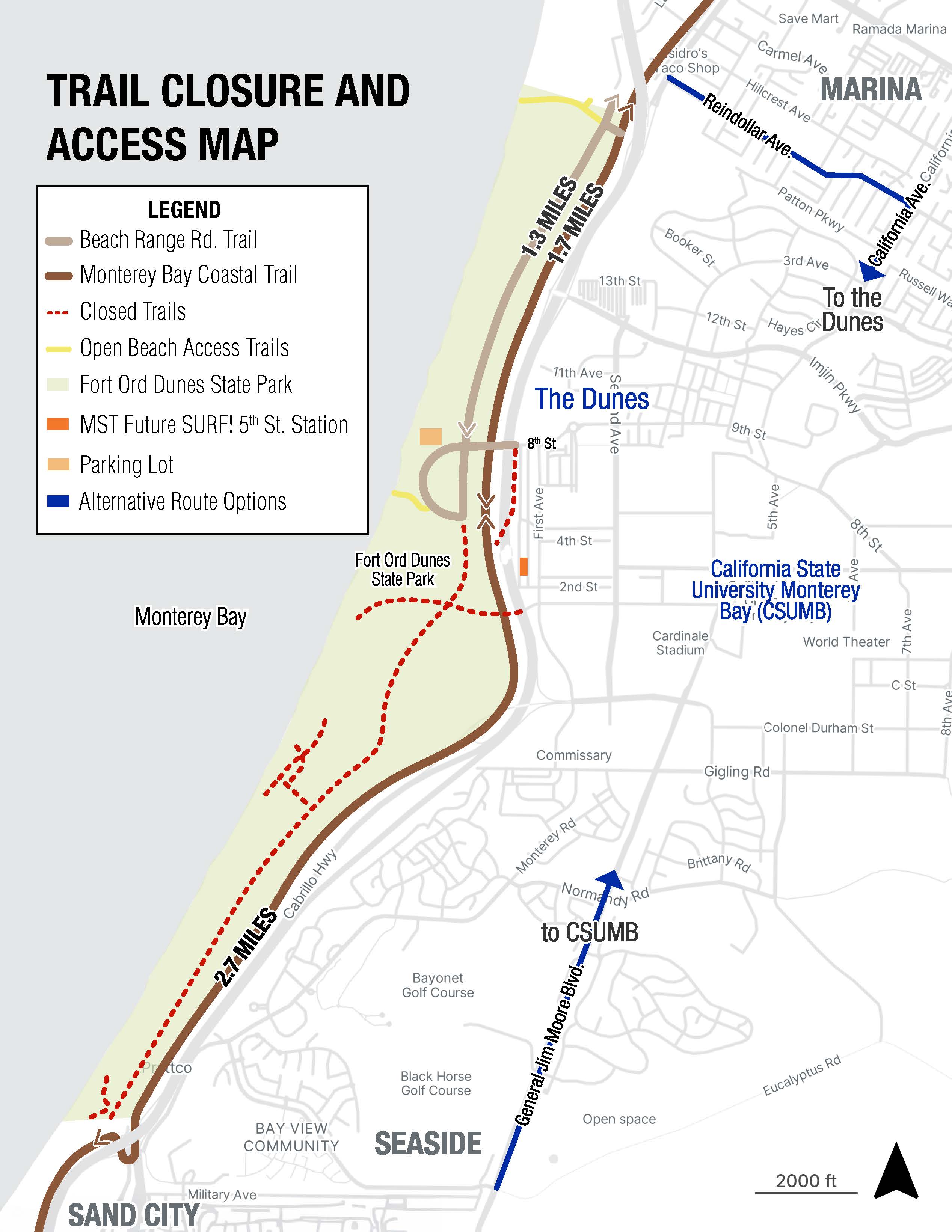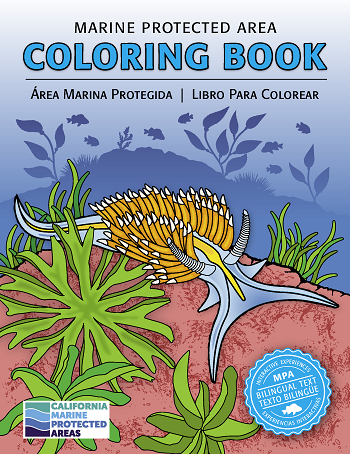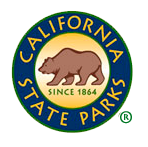A New State Park in the Making!
Monterey District's Newest California State Park
Opened to the public in 2009, Fort Ord Dunes State Park provides nearly 1,000 acres dedicated to public land, and 4 miles of ocean beach with beautiful views of the Monterey Bay National Marine Sanctuary. A new campground project is scheduled to begin in Summer 2025, and construction will last for approximately 2 years. Read more about the project at the link on the right-hand side of this page.
Fort Ord State Park's dunes and beaches are home to many endangered species. Please help us preserve these senstitive habitats by staying on designated trails and following CA State Park rules. Thanks for partnering with California State Parks by practicing "pack it out" rules for visitor food and other trash.
Learn about Fort Ord Dunes State Park with your Mobile Phone
At the main parking area visitors can view eight educational panels to learn more about the former Fort Ord US Army Base, as well as educational information about the natural history of the park.
You can also use your mobile phone to learn more about the history of Fort Ord and its cultural and natural features via the mobile phone audio tour. The tour is free, but normal cell phone charges apply. Look for mobile phone tour signs with instructions to access.
Dogs at Fort Ord Dunes State Park
In order to protect park resources, public access is limited to designated roads and trails which are open to bicyclists, hikers, and dogs on leash. Dogs are allowed on the recreation trail that runs north/south through Fort Ord Dunes State Park. Dogs are not allowed on spur trails to the beach OR on the beach due to endangered bird species and sensitive habitat areas.
Thank you for considering wildlife, other visitors, and other pets when walking your dog at Fort Ord Dunes State Park.
Current Trail Status
Some park trails are currently closed, including a portion of Beach Range Road. See map below. 
Invasive Jubata Grass Informational
Join us on a brief journey to understand what an invasive non-native species is, where Jubata Grass (often called Pampas Grass) came from, why it is a problem in California, and what the public can do to help restore and protect the Big Sur Coast. Story Map Link.jpg)
Marine Protected Area Coloring Book - Area Marina Protegida - Libro Para Colorear
Embark on a journey of discovery about Marine protection in a fun and easy way!!
 The Marine Protected Areas Coloring Book - Area Marina Protegida - Libro Para Colorear - helps students of all ages learn about the rich diversity of plant and animal life found in California's Marine Protected Areas (MPAs). The book includes three new 3D augmented reality coloring pages that will allow students to interact with their colorings using a smartphone or tablet while learning about marine life and California's marine protected areas.
The Marine Protected Areas Coloring Book - Area Marina Protegida - Libro Para Colorear - helps students of all ages learn about the rich diversity of plant and animal life found in California's Marine Protected Areas (MPAs). The book includes three new 3D augmented reality coloring pages that will allow students to interact with their colorings using a smartphone or tablet while learning about marine life and California's marine protected areas.
Download the new marine protected area (MPA) coloring book along with the California Coastal Explorer Guide at: https://www.mpacollaborative.org/kids/

 006.jpg)